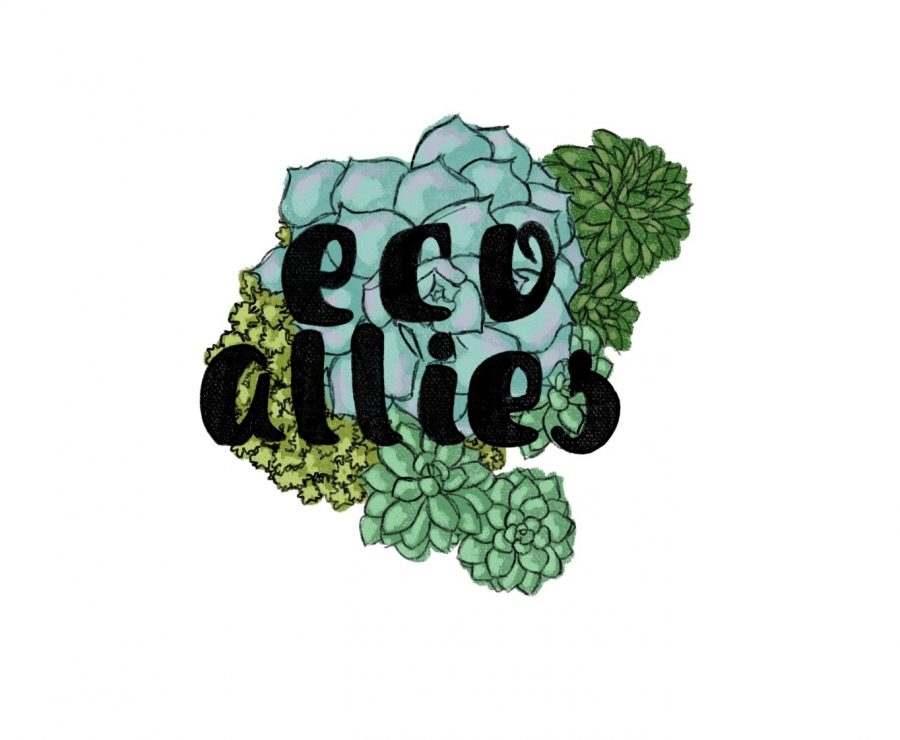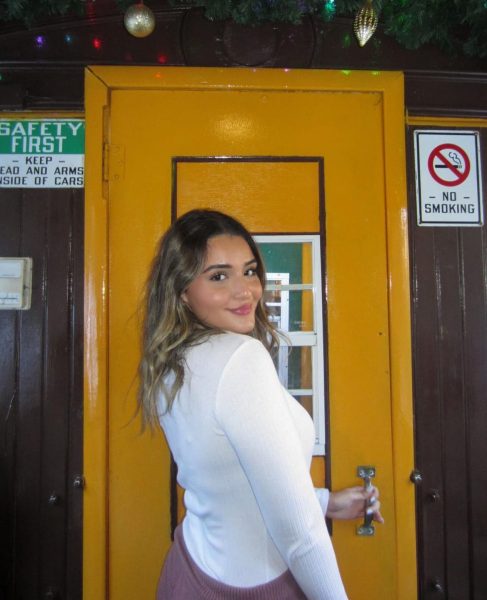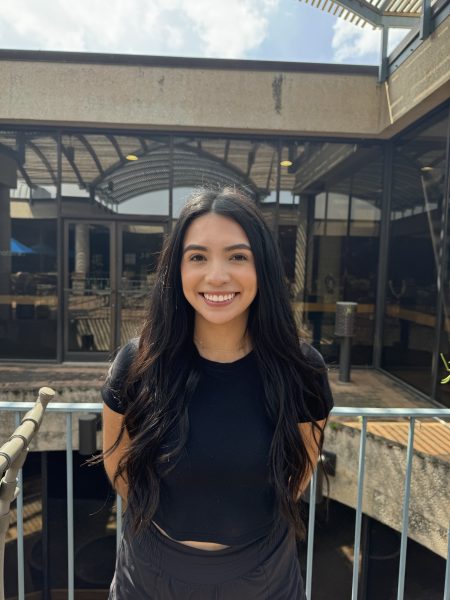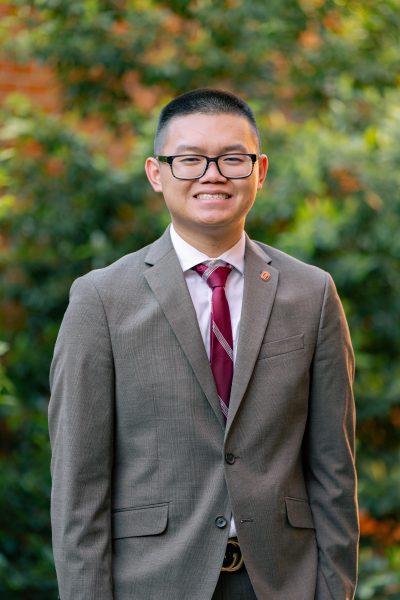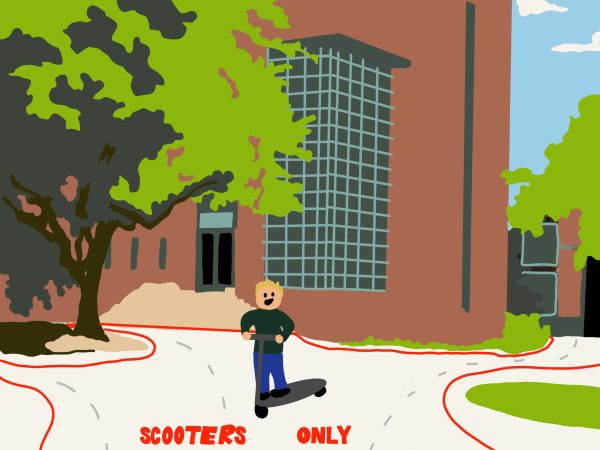A look into Eco Allies
The club aims to further improve Trinity’s sustainability efforts
Option 1
The TU Eco Allies are an active club in the Trinity community committed to starting sustainability initiatives and raising awareness for environmental justice. The officers of the club are dedicated to promoting environmental reform throughout Trinity. The Trinitonian interviewed the officers over email. A few of the responses have been cut down for length.
Trinitonian: What are your main goals as a club?
Juliet Sikorski, president: Our main goals are to welcome the Trinity community into widespread environmental action and facilitate community through our collective respect for the planet and all of its inhabitants.
We encourage action through educating and organizing students, highlighting local activism, and advocating for campus-wide sustainability. Building a community of passionate environmentalists on campus is also integral to both enacting genuine change and forming meaningful connections among ecologically-conscious students. We aim to be the space for Trinity students to really run with their environmental passions while forming supportive friendships in the process.
Victoria Bell, vice president: Alongside this, the main goal within our organization is to provide education about the important intersectional elements within environmentalism and sustainability. Many sustainable practices and environmental activism have only been made possible through the voices of marginalized individuals, especially those within Indigenous communities. Key issues that we discuss include lessons about Line 3 protests [against the expansion of the Line 3 oil pipeline through Indigenous lands in Minnesota], environmental racism and Indigenous concerns about the environment.
We are also in connection with Tigers Against Aramark through a representative because their values align similarly with ours.
T: When was the club started? How has it developed since then?
Ethan Crane, Outreach Chair: Not too long ago, environmentalism in the U.S. had a reputation for being somewhat apolitical, emphasizing personal responsibility over collective action, so, for example, instead of advocating for a societal transition away from fossil fuels, environmentalist clubs on college campuses might focus on how its members could reduce their carbon footprints. This might seem more pragmatic, if not less controversial. After all, how do you impact what the federal government or even local government does when you’re a tiny club on a college campus? That said, we know it’s a definite losing strategy to focus primarily on personal action because it is absolutely necessary to direct most of our attention to broader systems if we want any chance at liberating animals, saving the Amazon, improving public health and, of course, rolling back the climate crisis.
When I came to Trinity, Eco Allies talked about environmental justice to some degree, but probably not as much as personal sustainability. Our former president for two years, Bella Spangher, really hastened this move to politicize environmental issues. I think she deserves a lot of credit for that.
It’s still true that as a tiny institution at a liberal arts college, we don’t really have any political power, but we do have some power over Trinity. That’s why our club is slowly but surely building up the divestment movement, and we’re pressuring the school to make Coates and Mabee more sustainable. We also want to significantly improve recycling and start-up composting. EcoHabits, one of two collectives within Eco Allies, the other being Divest Trinity, got us the ReWear Closet about a year ago. We are trying to expand that as well.
Ultimately, what we do to make Trinity more sustainable is not only valuable in itself, but it also moves the needle for society at large. Divestment, for example, would hurt the fossil fuel industry and it would send a clear, moral message that it’s wrong to sacrifice human and nonhuman lives for corporate profits. This is a powerful message that signals to people that climate justice is within our control if we take power in our communities, whether that be at our church, city hall, workplace or school.
T: What kind of events do you usually put on?
Ilana Issula, Public Relations Chair: We like to offer a mix of opportunities to our members and the rest of the Trinity community. Currently, we host two informational, discussion-based meetings a month, where we highlight different environmental justice and sustainability topics. We also engage in service. A few weeks ago, we volunteered at the Cibolo Center Monarch Festival’s craft booths. We are planning on hosting park and river cleanups and becoming involved in other service opportunities around the city. Of course, we also have socials. We have environmentally focused movie nights, plant potting events and more. We have had an especially good turnout at our socials.
T: What are your opinions on Trinity’s sustainability as it is?
Kira Lowell, treasurer: Trinity has some good sustainable implementations and initiatives, such as a LEED certification for several buildings on campus and the Sustainability Committee. That said, we are far from perfect. For example, there is still a lack of clarity among students about recycling practices, the campus’s compost situation and the many ways that we as individuals and a community can reduce our waste and impact. There are definitely always ways to improve. As such, our club serves as an educational resource and open forum for students to come up with ideas for sustainability improvements and projects. As far as long-term environmental and financial sustainability goes, Divest Trinity’s mission and purpose come to mind. Continuing investment in industries such as oil and gas rather than cleaner, more cost-effective alternatives aren’t ethical nor is it sustainable financially and environmentally.
Among the sustainability offices at Trinity, the work that this club does is appreciated. Sharon Miller Curry, the sustainability coordinator, reflects on their role on campus.
“Eco Allies has been a great advocate in helping us increase awareness of the sustainability initiative on the campus. They’ve also established great programs. Things like that are very important.”
To get involved with Trinity’s sustainability initiatives, Miller Curry and TU Eco Allies encourage students to reach out.
“We also want to do plenty of work on campus as well, especially with intersectional environmentalism. If any organizations on campus are interested in collaborating with us for volunteering, promoting a speaker event or even providing your own insights about what we can do as an organization, we would absolutely love for you to reach out to us at [email protected],” Bell said.

My name is Emma and I am a sophomore from Lockhart, Texas. I have worked at the Trinitonian since Spring 2021. I am an English major and hope to become...

